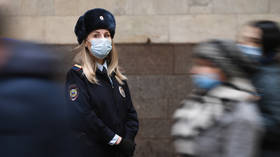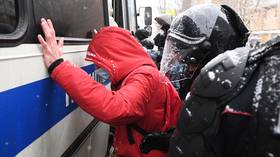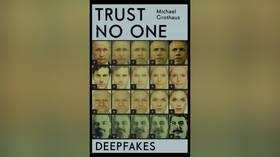Police get more powers under new law

Russian President Vladimir Putin has signed a law that will further empower the country’s police officers to enter a range of premises, including residential spaces, as part of efforts to apprehend offenders.
Putin inked his signature on the new legislation on Tuesday, which will allow law enforcement to open cars to detain suspects or defendants in order to save lives or ensure the safety of the public during mass riots and emergencies, as well as terrorist attacks.
Officers will be able to enter residential premises, as well as cordon off buildings and territory, to detain suspects.
Under the new provisions, police are allowed to introduce themselves to the detainee after they have ceased illegal actions. Law enforcement will be able to require citizens give their full names to run checks on individuals, as well as their belongings and vehicles if there is suspicion that they have weapons, ammunition, explosives, radioactive substances, stolen objects, or drugs.
Speaking before the signing of the law, the chairman of the Expert Council on Security and Relations of Citizens with Law Enforcement Agencies, Anton Tsvetkov, told RIA Novosti that the “amendments would remove legislative obstacles that prevent police from performing public safety tasks.”
“Today, it is not uncommon for a police officer to have to break the law to protect and save people,” he said. “This means that the law needs to be improved point by point.”
Earlier this year, investigators in Moscow announced that they were looking into whether riot officers had breached rules on the use of force while breaking up mass protests in support of jailed opposition figure Alexey Navalny. Unauthorized large-scale events had been banned throughout much of the country due to the Covid-19 pandemic.
Tatyana Potyaeva, the city’s human rights ombudsman, told TASS in February that “based on injuries received by citizens, who claim they were due to law enforcement agency employees, over 100 inspections are being carried out.” She also said that people who ended up in protest hotspots were also detained, some of those being minors.
Thousands were believed to have been detained at unauthorized rallies over two weekends in January. Damelya Aitkhozhina, a researcher at Human Rights Watch, warned that “Russian authorities are heading the wrong way with more abusive security measures, more police on the streets, and more footage of injured people.”
However, Russia has experienced a series of attacks in recent months. A shooting at Perm State University in September saw an officer neutralize the offender before providing him with first aid. In May, police detained the gunman behind an attack on a school in Kazan, which saw at least nine killed.














